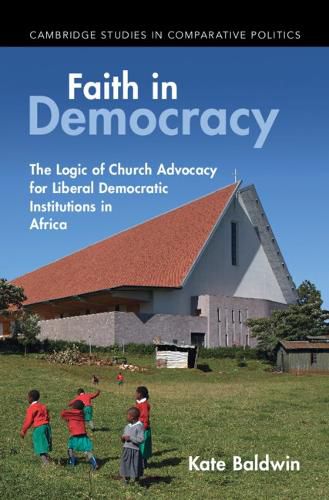Readings Newsletter
Become a Readings Member to make your shopping experience even easier.
Sign in or sign up for free!
You’re not far away from qualifying for FREE standard shipping within Australia
You’ve qualified for FREE standard shipping within Australia
The cart is loading…






Why have some churches in Africa engaged in advocacy for stronger liberal democratic institutions while others have not? Faith in Democracy explores this question, emphasizing the benefits of liberal democratic protections for some churches. The book explains how churches' historic investments create different autocratic risk exposure, as states can more easily regulate certain activities - including social service provision - than others. In situations where churches have invested in schools as part of their evangelization activities, which create high autocratic risk, churches have incentives to defend liberal democratic institutions to protect their control over them. This theory also explains how church fiscal dependence on the state interacts with education provision to change incentives for advocacy. Empirically, the book demonstrates when churches engage in democratic activism, drawing on church-level data from across the continent, and the effects of church activism, drawing on micro-level evidence from Zambia, Tanzania and Ghana.
$9.00 standard shipping within Australia
FREE standard shipping within Australia for orders over $100.00
Express & International shipping calculated at checkout
Why have some churches in Africa engaged in advocacy for stronger liberal democratic institutions while others have not? Faith in Democracy explores this question, emphasizing the benefits of liberal democratic protections for some churches. The book explains how churches' historic investments create different autocratic risk exposure, as states can more easily regulate certain activities - including social service provision - than others. In situations where churches have invested in schools as part of their evangelization activities, which create high autocratic risk, churches have incentives to defend liberal democratic institutions to protect their control over them. This theory also explains how church fiscal dependence on the state interacts with education provision to change incentives for advocacy. Empirically, the book demonstrates when churches engage in democratic activism, drawing on church-level data from across the continent, and the effects of church activism, drawing on micro-level evidence from Zambia, Tanzania and Ghana.